November 21-25, 2022 — AFoCO and the Forest Aviation Headquarters (FAH) of the Republic of Korea jointly organized the “Onsite Training on Drone Operation and Forest Fire Suppression” for the 2nd batch of the 2022 AFoCO Fellowship Officials as part of a partnership that sees the two organizations pursue activities aimed at promoting forest fire management in Asia. The training was held from 21 to 25 November 2022 at the Forest Aviation Headquarters (FAH) in Wonju City, Gangwon province of the Republic of Korea. 3 Fellowship Officials from Brunei Darussalam, Indonesia, and Mongolia from the 2nd batch of the 2022 AFoCO Fellowship Program participated in the training.
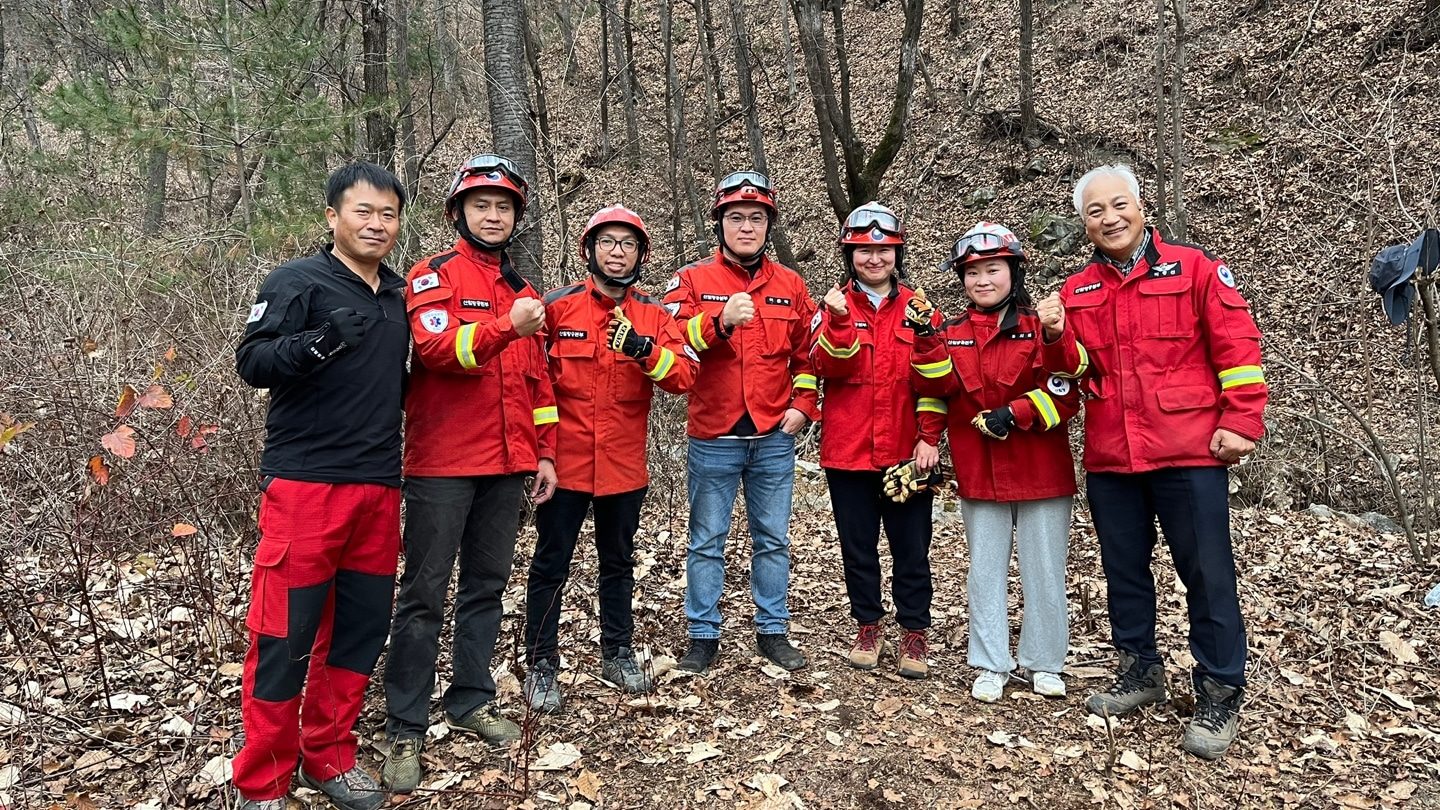
Aris Ristiyana, Fellowship Official from Indonesia
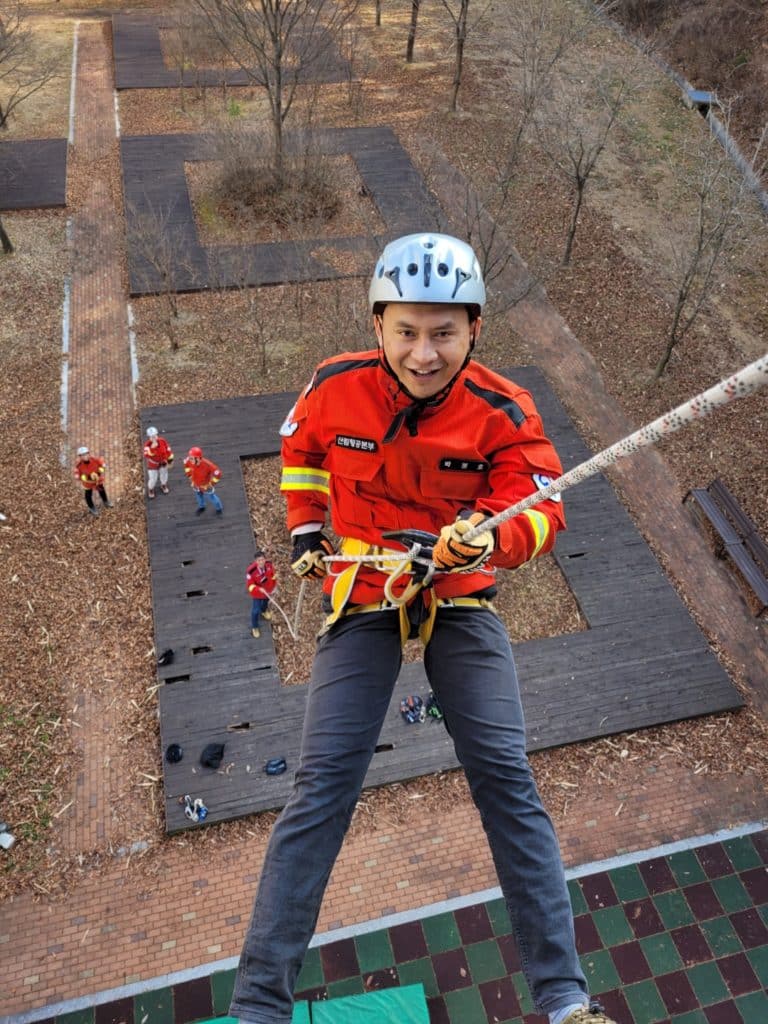
“I would like to express my gratitude to the FAH and AFoCO who have worked together to organize training for Fellowship Officials. The training curriculum is structured and comprehensive and the hands-on practice sessions helped enhance the learning experience of the officials. The completeness of the facilities and as well as the expertise of the FAH officers shows how the country prioritizes protection from forest from fires and other disturbances to ensure sustainable forest and environmental management.”
Rozizan Maslin, Fellowship from Brunei Darussalam
“First and foremost, I would like to thank AFoCO and Korea Forest Aviation Headquarters for the opportunity to participate in training on drones and forest fire management training. I never imagined that it would be tough training until we were expected to carry all the equipment uphill to the test forest fire site to simulate an actual situation. But through the training itself, we learned valuable things about what to do when there is a forest fire outbreak. On top of forest fire management training, we also learned how to rappel. Meanwhile, the drone training was rather different from the FFM training as we had to focus on the instructions to operate the drone. Overall, the training is very useful and hopefully, the advanced technologies fire management technologies can be shared with other AFoCO member countries as well .”
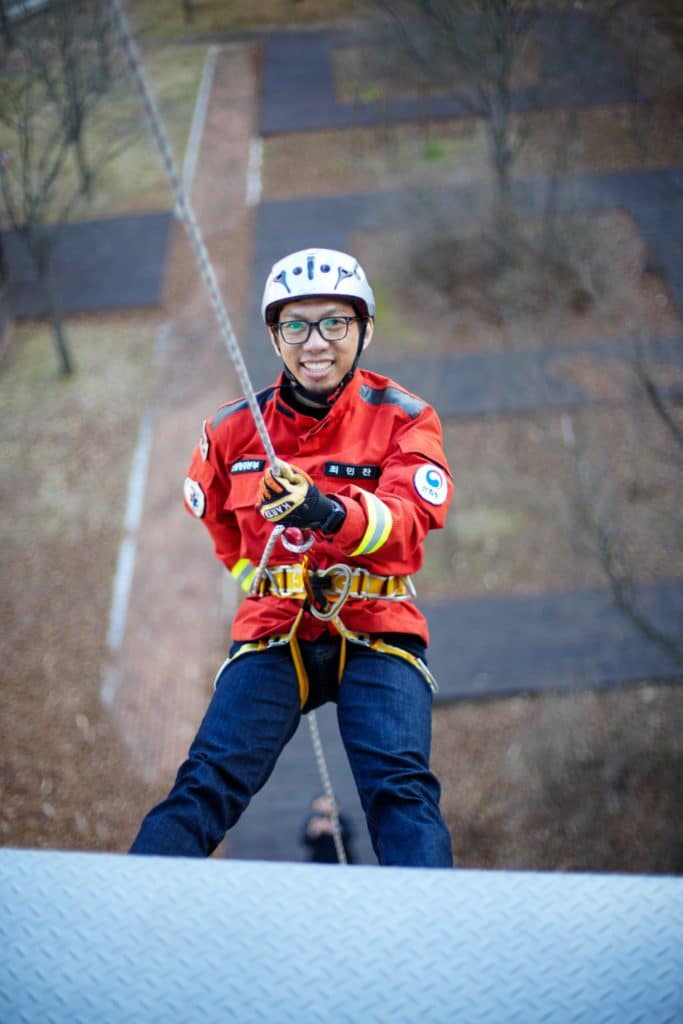
Janchivdorj Altangadas, Fellowship Official from Mongolia
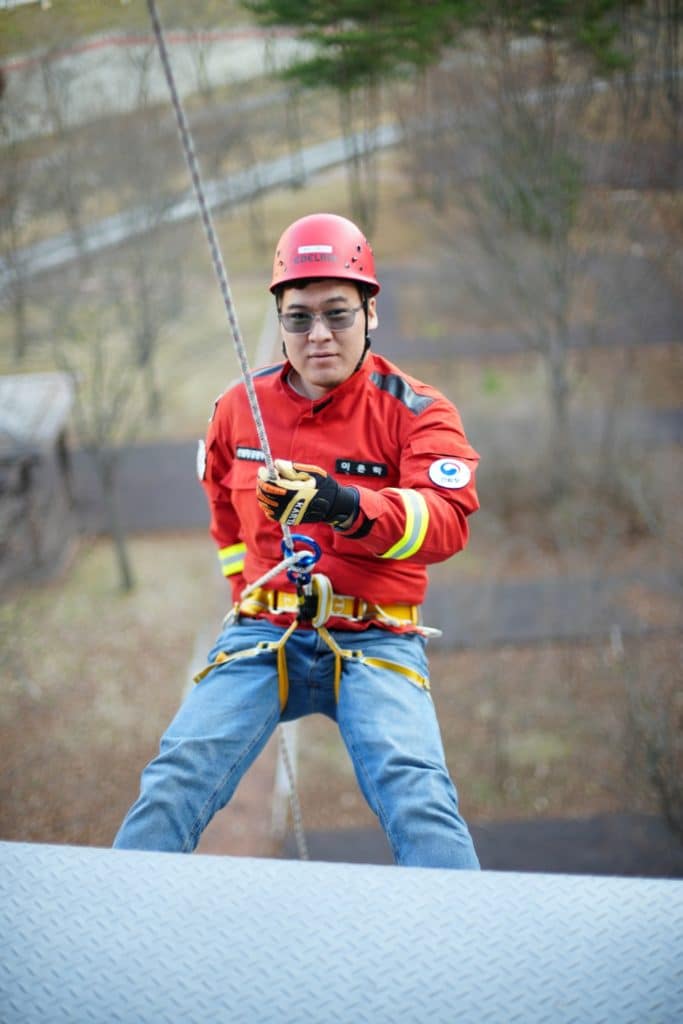
“Thanks to the FAH, I had the opportunity to get acquainted with the advanced technologies used in the forestry sector of the Republic of Korea. On the first day of the training, we learned about the types of equipment and technologies used by Korea to monitor and deal with forest fires, forest diseases, and pests. My level of experience with drones was limited. But I gained very useful knowledge through drone training. Drone-based control and monitoring are very effective and transparent, and facilitate the work of the “One Billion Trees” national movement in our country. It would be very useful to organize a training course on how to effectively deal with wildfires, forest diseases, and pests in the forestry sector for Mongolia.”
Hansol LEE, Assistant Program Officer of the AFoCO Secretariat
“I really appreciate the dedication and contributions of all FAH trainers. As a researcher and assistant staff member of AFoCO, it was a great opportunity to learn about field-oriented activities in forested areas. As there have been more forest fire occurrences in recent years, it was a timely chance to gain knowledge on how to manage forest fires and how specialized technologies and facilities are being used to deal with and monitor forest fires. Practicing how to fly a drone was also a very interesting experience. Drones can be useful in various other ways such as shooting videos, mapping specific geographical areas, and spraying agricultural pesticides. Reflecting on the theoretical knowledge and practical experience from the training, I hope we can extend the shared ideas to collaborate in policy arenas at regional and international levels.”
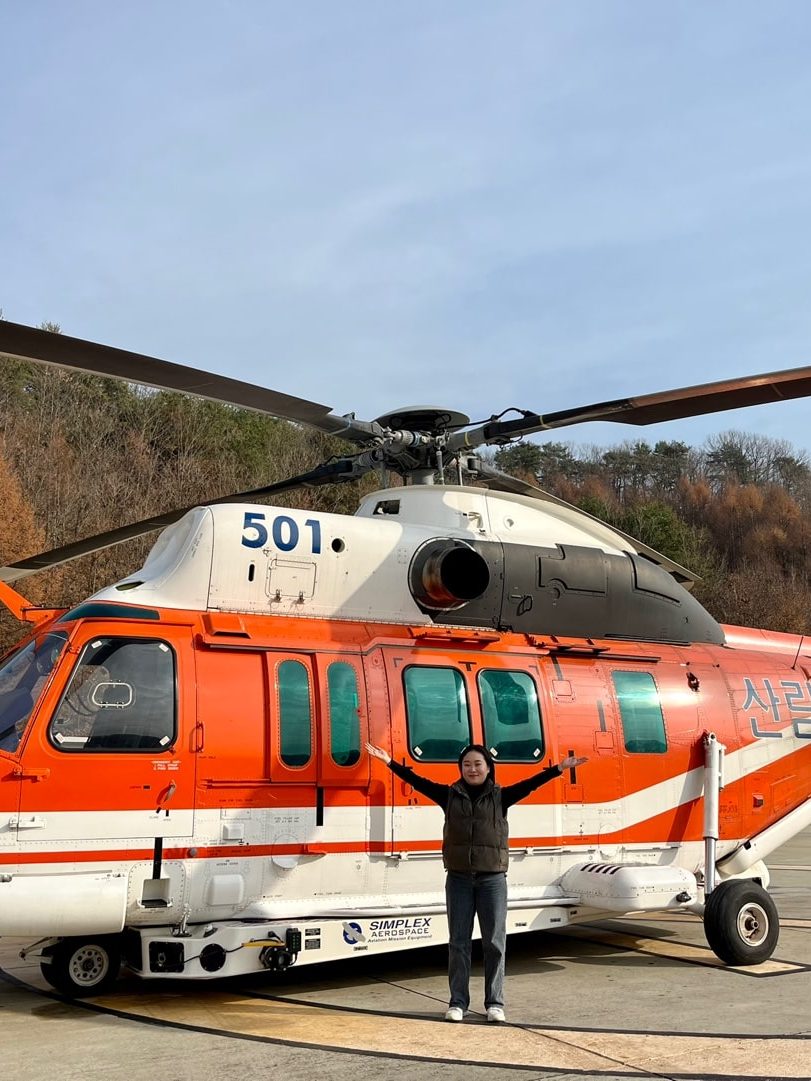
Jeong Yujeong, Assistant Program Officer of the AFoCO Secretariat
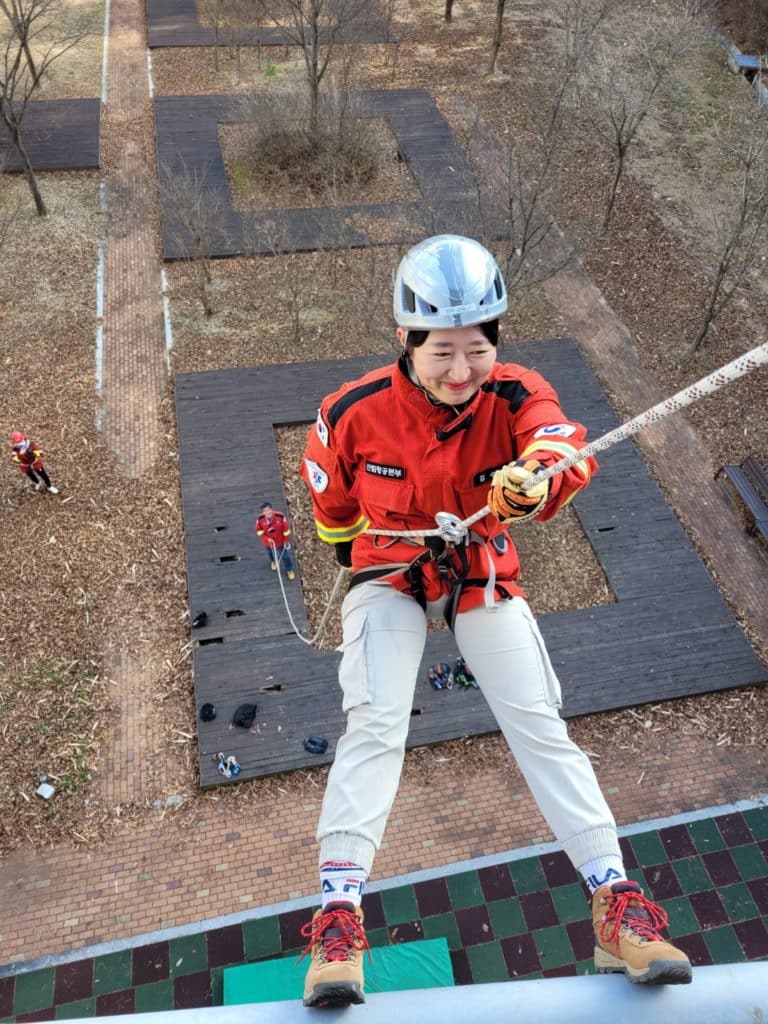
“I am very grateful to the instructors and staff of FAH for giving me such a great experience and the valuable opportunity to learn firsthand about how forest fires are dealt with on the ground. I learned how the forest fire warning system operates as well as how forest fires are extinguished systematically. Rappelling and climbing the artificial wall was the most memorable part of the training. Although I was afraid of heights initially, after starting to rappel, I realized that I was enjoying the process. I gained the confidence to take on new challenges, even if it was something I had never done before. Lastly, learning how to operate drones was both interesting and practical, but the time given for training was insufficient. I hope the next training session can be extended beyond five days to provide sufficient time to learn.”
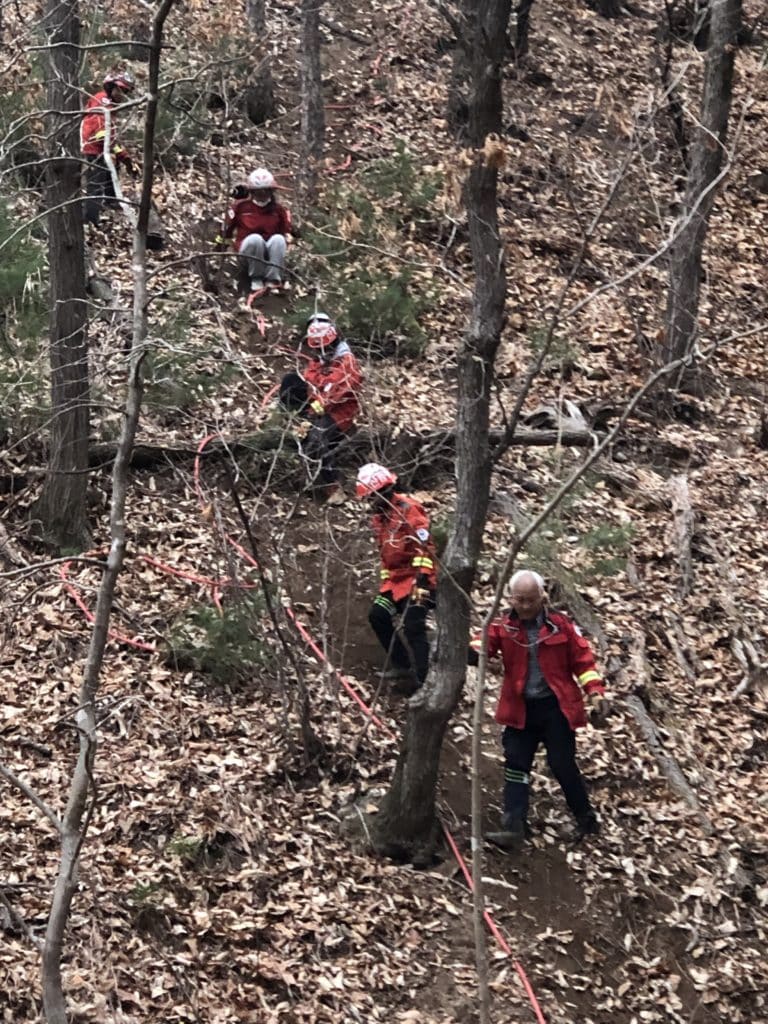
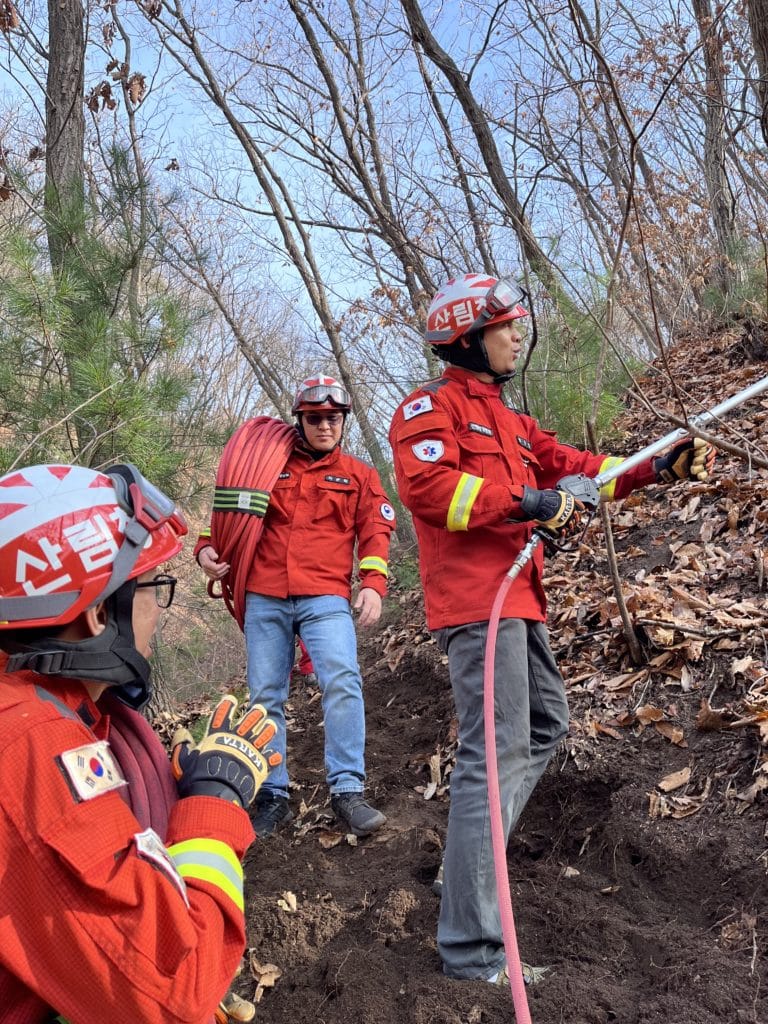
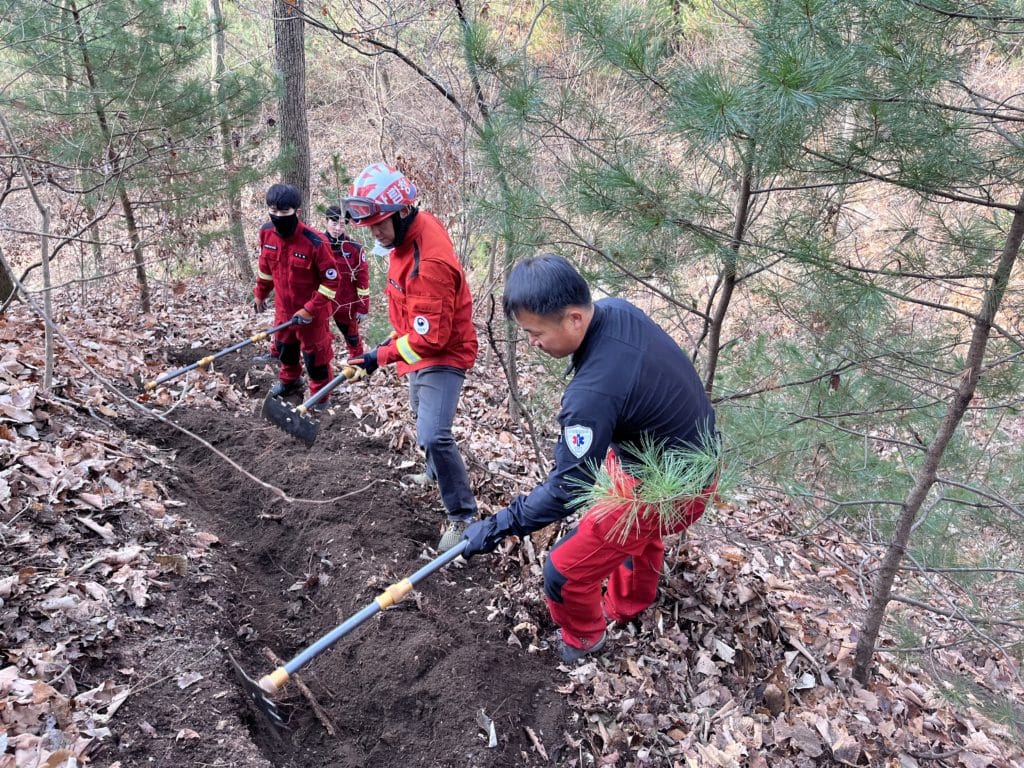
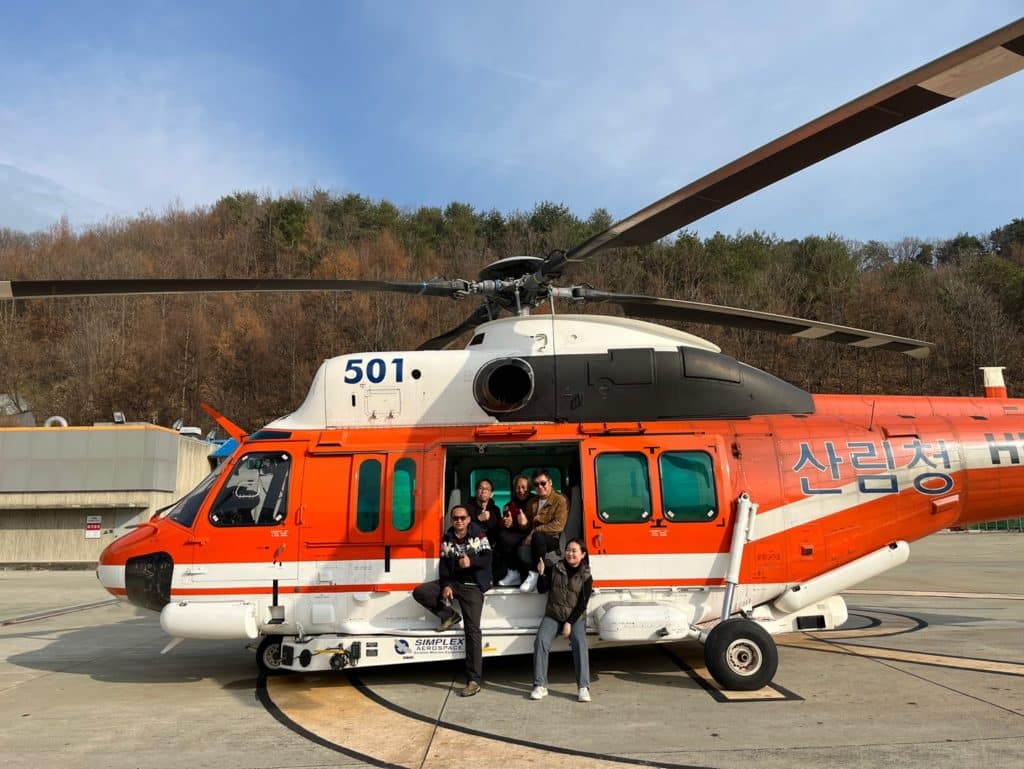
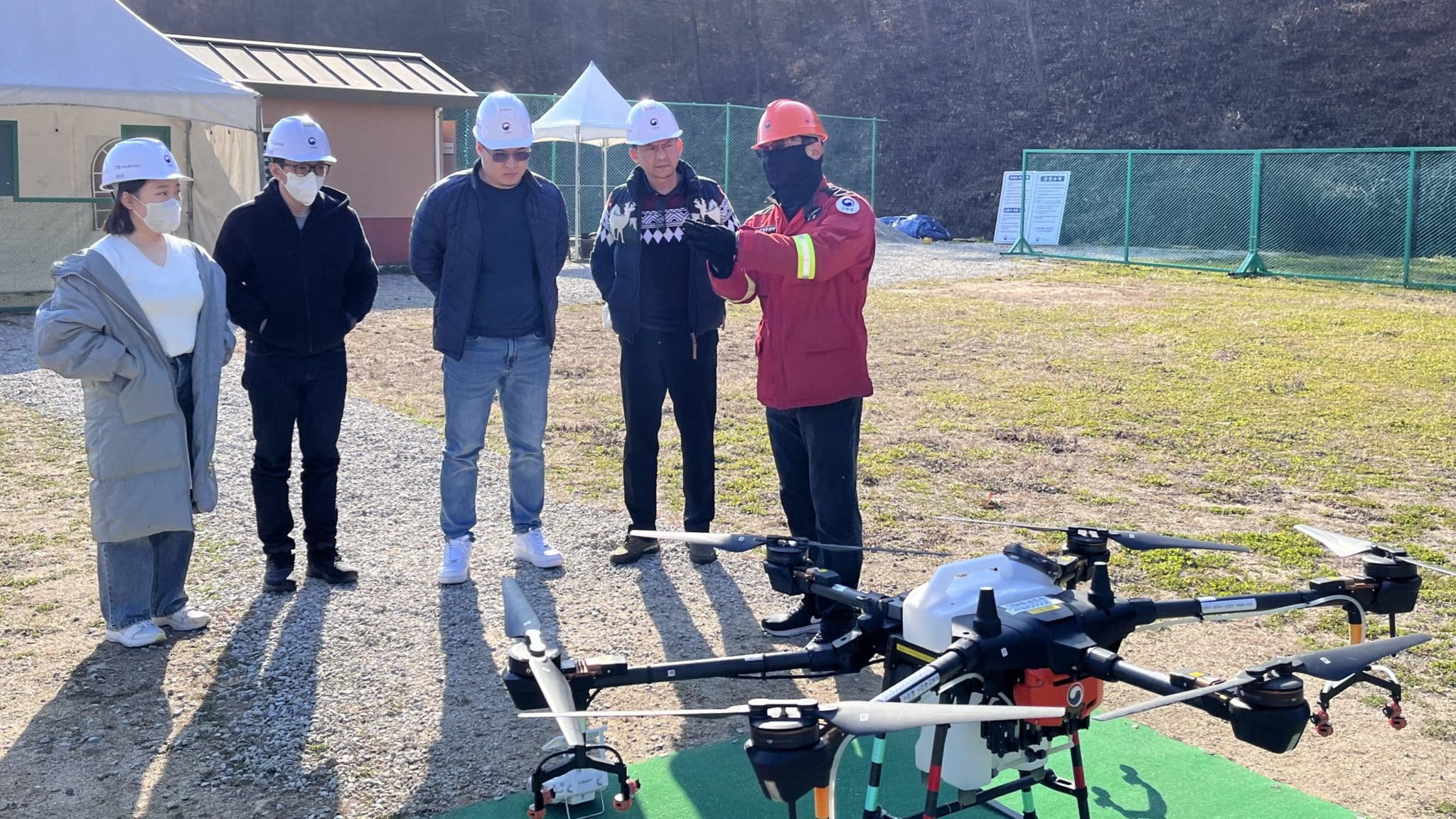
At the end of the training, Director-General Mr. Ko Kiyeon handed certificates of completion to all training participants. The Fellowship Officials expressed their gratitude to the officials and instructors from FAH.
Established in 1971, the FAH works to reduce the number of forest fire outbreaks and minimize forest fire damage through early suppression systems and cutting-edge fire prevention technologies. The Headquarters possess 47 helicopters and its operations include preventing forest fires and forest pests and diseases, transporting mateirlas for the restoration and protection of public facilities, and providing rescue services.
Contributed by the 2nd Batch of 2022 AFoCO Fellowship Officials — Janchivdorj Altangadas, Aris Ristiyana, Rozizan Maslin; and Assistant Program Officers Jeong Yujeong and Lee Hansol

